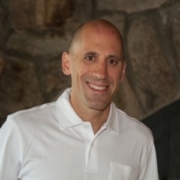Week That Was in Ethical Systems, 3/31/14-4/6/14
A recent study on lies in the financial industry found that although investment professionals “are just a little better than 50-50 in their ability to detect lies, they think they get it right over two-thirds of the time.” This kind of misplaced confidence is emblematic of our general human tendency to overestimate our capabilities. People often have unjustifiably high certainty in their own judgments and believe that contradictory judgments are the result of bad information or bias. However, as the authors of the study point out, careful attention to evidence can mitigate these effects and reduce the efficacy of deception–or even enable us to catch liars in the act. Ethical systems design is about building organizational structures and measures that account for self-serving biases and work around flaws intrinsic to human nature, but first those biases and flaws must be identified. We intend to report on this study in more depth later this year when it is published in the Journal of Behavioral Finance, but for now please visit our pages on decision-making, cheating, and contextual influences to learn more.
Business Ethics 101: Care, Deliver and Do The Right Thing, in Small Business Trends
Although much of the conversation on business ethics is centered around the ethical crashes of large companies, small businesses that wish to be successful should also be concerned with building ethical systems into their operations from day one. The author suggests how organizations can consciously plan out their commitment to ethics and emphasizes one of the key contentions of EthicalSystems.org — the idea that strong ethics pays off for an enterprise in the long run.
Reinforcing a culture of integrity in your workforce, in The FCPA Blog
“According to a recent opening keynote at the Ethisphere/Thomson Reuters annual Global Ethics Summit in New York City on March 20 and 21, the key [to fostering an ethical business climate] is working with the right people to avoid potential reputational risks.” While we would caution that even with good people, thoughtful systems design is necessary to minimize unethical behavior, smart hiring is definitely the first step in developing an ethical culture. We invite you to check out our page on Personality and Personnel, as well as contributor Adam Grant’s insights into how to hire “givers” and screen out “takers.” For more detail, please read our summary of Adam’s book, Give and Take.



